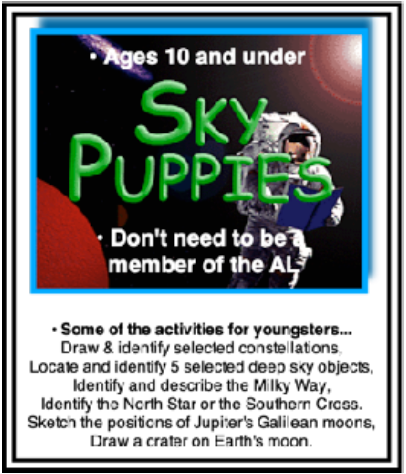March 7
Tri-Star 2020
Guilford Technical Community College, Jamestown, North Carolina
Greensboro (NC) Astronomy Club and the Cline Observatory
https://www.gtcc.edu/community-engagement/cline-observatory/special-lectures-and-events/tristar.php
March 28
2020 All Arizona Messier Marathon
Salome Emergency Airfield
La Paz County, Arizona
https://www.saguaroastro.org/
April 2-3
Northeast Astro-Imaging Conference
Rockland Astronomy Club, Suffern, New York
http://www.rocklandastronomy.com/neaic.html
April 4-5
Northeast Astronomy Forum and Solar Star Party
Rockland Astronomy Club, Suffern, New York
http://www.rocklandastronomy.com/neaf.html
April 23-26
Southern Star Astronomy Convention
Charlotte Amateur Astronomers Club, Little Switzerland, North Carolina
http://www.charlotteastronomers.org/southernstar/
April 23-26
South Jersey Astronomy Club Spring Star Party
Belleplain, New Jersey
http://sjac.us/starparty.html
April 23
Pickett Astronomy Day
Pickett-Pogue Dark Sky Park
Jamestown, Tennessee
URL to be updated
April 23-26
North Carolina Statewide Star Party
40+ public skywatching sessions from the North Carolina mountains to the coast
http://www.ncsciencefestival.org/special-opportunities/starparty/
April 24-26
Michiana Star Party 12
Dr. T. K. Lawless Park, Michigan
http://www.michiana-astro.org/
May 1-2
NCRAL 2020
Port Washington, Wisconsin
https://ncsf.info/ncral-vision-2020/
May 2
Astronomy Day
Nationwide.
https://test.astroleague.org//astronomyday/spring
May 17-24
Texas Star Party
Fort Davis, Texas
www.texasstarparty.org





